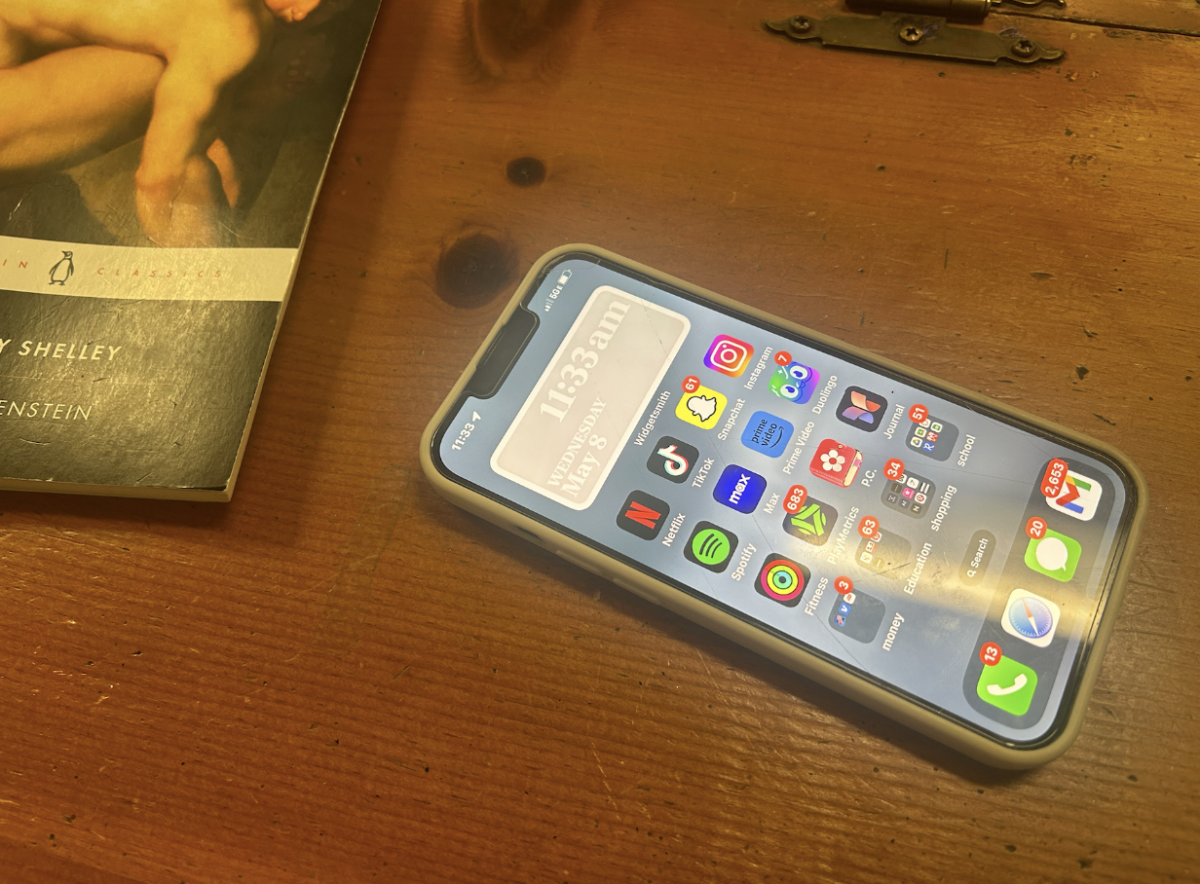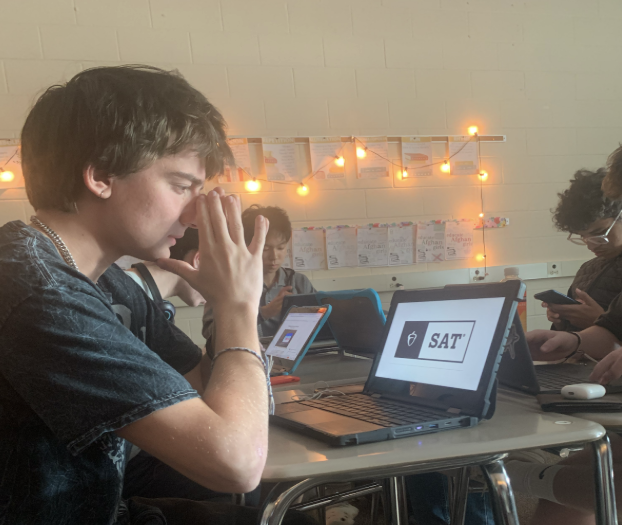President Joe Biden signed a bill into law on April 24, 2024, that would mandate the Chinese-owned TikTok to sell to an American company within a year or face an outright ban across the United States.
ByteDance, a Chinese internet technology company, was founded in 2009 by software engineer and entrepreneur Zhang Yiming and his colleague Liang Rubio. They created the app shortly after another successful venture, Fang, a real estate search engine, similar to Zillow. The pair developed and released TikTok to consumers in China and India in 2016, which would later be launched to the international market in 2017. ByteDance sources claimed that they would rather face a ban within the United States than sell the app, citing that the algorithms on TikTok are a key component of ByteDance’s overall operations.
Around a third of the American population uses the short-form video app. Nearly a third of American adults aged 18 through 29 use TikTok as a news source. The American Civil Liberties Union (ACLU) see this ban as going against free speech guaranteed by the First Amendment, a senior policy consultant Jenna Leventoff said in a blog. “That banning a social media platform that hundreds of millions of Americans use to express themselves would have devastating consequences for all of our First Amendment rights, and will almost certainly be struck down in court,” she wrote.
TikTok, agreeing with this sentiment, filed a lawsuit on May 7 in the U.S. Court of Appeals for the Washington D.C. circuit. They argued that the choice they were given violates the free speech rights enumerated in the First Amendment of the Bill of Rights.
In January 2023, North Carolina Governor Roy Cooper used an executive order to ban access to TikTok for all state government-issued devices. The action was explained as an effort to keep North Carolina residents safe. “[Since this technology] includes a wide range of sensitive information about government operations and state residents … that state agency employees may not install or otherwise utilize the TikTok,” according to the statement released as part of Executive Order No. 276.
This bill fell under the larger bipartisan bill that would approve 95.3 billion dollars in aid to Taiwan, Israel and Ukraine. This bill allotted 60 billion dollars to Ukraine to aid them in their conflict with Russia. A part of this TikTok bill was included in large part due to opposition from House Republicans who were against the passing of these funds.
Controversy surrounding the app are an international occurrence. In September 2023, the EU fined TikTok 368 million dollars due to its failure to protect children’s privacy. During the COVID-19 pandemic, TikTok, like other social media platforms, were criticized for spreading misinformation regarding the health effects of the virus. These theories ranged from health tips that eating garlic would prevent COVID-19, to claims that COVID-19 vaccines were magnetic, encouraging certain individuals to go unvaccinated.
A sophomore student at Green Hope, who wished to remain anonymous, expanded on their perspective of the relationship between misinformation and TikTok. “I feel like misinformation spreads everywhere on the internet; it’s not just a TikTok thing. If stopping misinformation is the goal of this ban, they’re not going to achieve it this way,” they said.
TikTok also faces privacy and security concerns from users, ranging from complaints of viewing location data, to having your voice and face on this platform. It is not the only company that can see this information as other social media sites can view this as well, however, due to the Chinese government’s influence over the owners of TikTok, legislators raised concerns that they are using data to target American citizens.
A teacher at Green Hope spoke to the concerns that American companies also have access to their data, “Of all the reasons that politicians have used for TikTok being banned or forced to sell the security concerns are the most hypocritical as US companies such as Instagram, Facebook and Snapchat also have security concerns as they can use the data and information to make their money,” said the teacher.
In addition to safety issues, there are concerns regarding the amount of time that teenagers spend on the app. “I spend about an hour to an hour and a half a day. It makes me feel unproductive, tired and overall in a pretty bad mood afterward,” said Evan Koo (’25), a regular TikTok user. Koo’s experience is reflected in a study done by the Depression and Bipolar Support Alliance. The report stated that “high levels of social media use over the span of four years was associated with increased depression among middle and high school youths.”
If ByteDance, the parent company of TikTok, were to sell the app to an American company, it will still be allowed within the United States. Critics continue to say that the use of data and personal information can be an important tool used by the Chinese parent company to spread misinformation. Access to American citizen’s information is viewed as a national security threat, as TikTok’s leadership decides their company’s future.
















































































